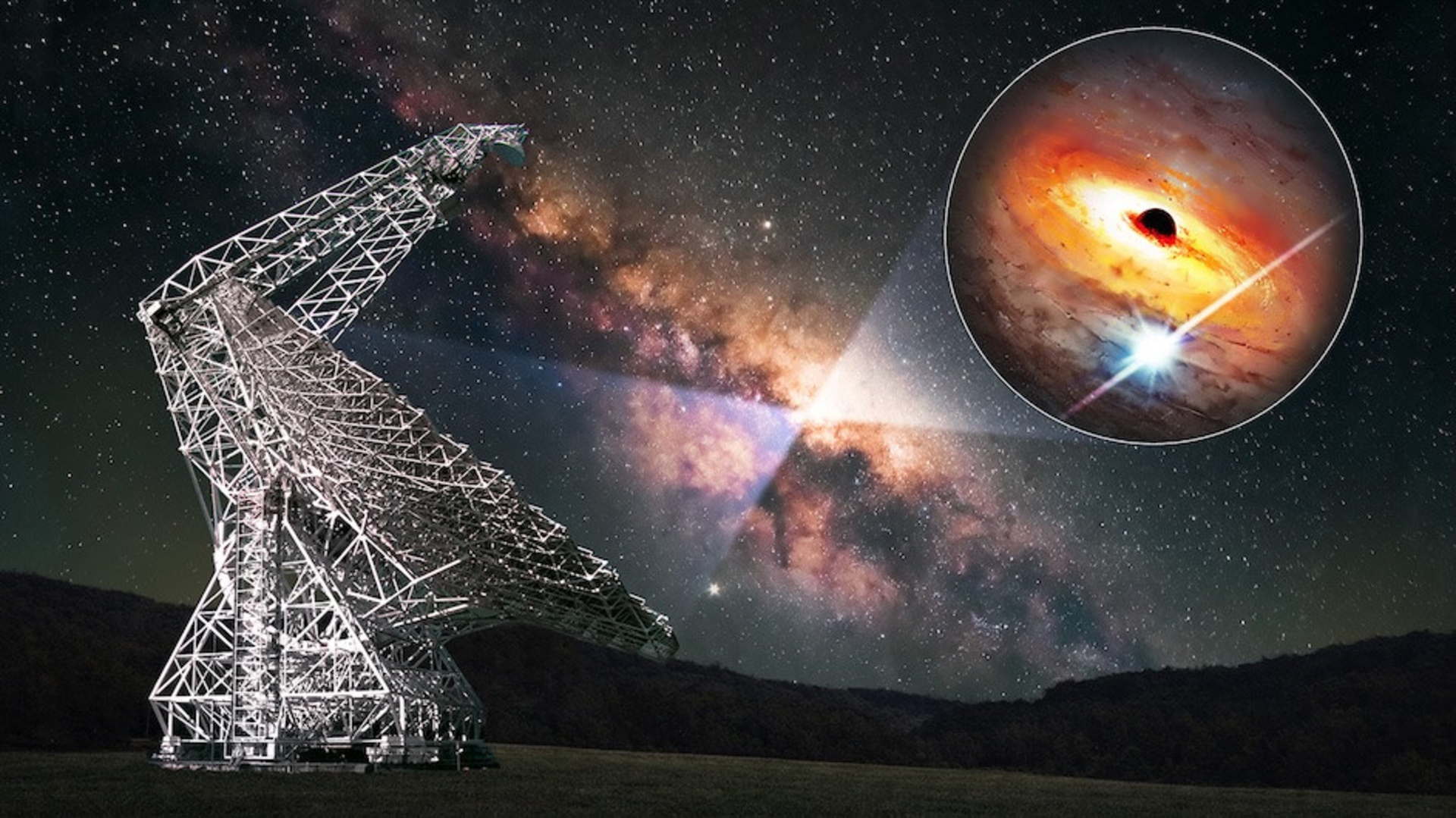AI singularity may come in 2027 with artificial 'super intelligence' sooner than we think, says top scientist
We could build an AI that demonstrates generalized, human-level intelligence within three to eight years — which may open the door to a "super intelligence" in a very short space of time.

Get the world’s most fascinating discoveries delivered straight to your inbox.
You are now subscribed
Your newsletter sign-up was successful
Want to add more newsletters?

Delivered Daily
Daily Newsletter
Sign up for the latest discoveries, groundbreaking research and fascinating breakthroughs that impact you and the wider world direct to your inbox.

Once a week
Life's Little Mysteries
Feed your curiosity with an exclusive mystery every week, solved with science and delivered direct to your inbox before it's seen anywhere else.

Once a week
How It Works
Sign up to our free science & technology newsletter for your weekly fix of fascinating articles, quick quizzes, amazing images, and more

Delivered daily
Space.com Newsletter
Breaking space news, the latest updates on rocket launches, skywatching events and more!

Once a month
Watch This Space
Sign up to our monthly entertainment newsletter to keep up with all our coverage of the latest sci-fi and space movies, tv shows, games and books.

Once a week
Night Sky This Week
Discover this week's must-see night sky events, moon phases, and stunning astrophotos. Sign up for our skywatching newsletter and explore the universe with us!
Join the club
Get full access to premium articles, exclusive features and a growing list of member rewards.
Humanity could create an artificial intelligence (AI) agent that is just as smart as humans in as soon as the next three years, a leading scientist has claimed.
Ben Goertzel, a computer scientist and CEO of SingularityNET, made the claim during the closing remarks at the Beneficial AGI Summit 2024 on March 1 in Panama City, Panama. He is known as the "father of AGI" after helping to popularize the term artificial general intelligence (AGI) in the early 2000s.
The best AI systems in deployment today are considered "narrow AI" because they may be more capable than humans in one area, based on training data, but can't outperform humans more generally. These narrow AI systems, which range from machine learning algorithms to large language models (LLMs) like ChatGPT, struggle to reason like humans and understand context.
However, Goertzel noted AI research is entering a period of exponential growth, and the evidence suggests that artificial general intelligence (AGI) — where AI becomes just as capable as humans across several areas independent of the original training data — is within reach. This hypothetical point in AI development is known as the "singularity."
Goertzel suggested 2029 or 2030 could be the likeliest years when humanity will build the first AGI agent, but that it could happen as early as 2027.
If such an agent is designed to have access to and rewrite its own code, it could then very quickly evolve into an artificial super intelligence (ASI) — which Goertzel loosely defined as an AI that has the cognitive and computing power of all of human civilization combined.
Get the world’s most fascinating discoveries delivered straight to your inbox.
"No one has created human-level artificial general intelligence yet; nobody has a solid knowledge of when we're going to get there. I mean, there are known unknowns and probably unknown unknowns. On the other hand, to me it seems quite plausible we could get to human-level AGI within, let's say, the next three to eight years," Goertzel said.
On the cusp of the singularity
He pointed to "three lines of converging evidence" to support his thesis. The first is modeling by computer scientist Ray Kurzweil in the book "The Singularity is Near" (Viking USA, 2005), which has been refined in his forthcoming book "The Singularity is Nearer" (Bodley Head, June 2024). In his book, Kurzweil built predictive models that suggest AGI will be achievable in 2029, largely centering on the exponential nature of technological growth in other fields.
Goertzel also pointed to improvements made to LLMs within a few years, which have "woken up so much of the world to the potential of AI." He clarified LLMs in themselves will not lead to AGI because the way they show knowledge doesn't represent genuine understanding, but that LLMs may be one component in a broad set of interconnected architectures.
The third piece of evidence, Goertzel said, lay in his work building such an infrastructure, which he has called "OpenCog Hyperon," as well as associated software systems and a forthcoming AGI programming language, dubbed "MeTTa," to support it.
OpenCog Hyperon is a form of AI infrastructure that involves stitching together existing and new AI paradigms, including LLMs as one component. The hypothetical endpoint is a large-scale distributed network of AI systems based on different architectures that each help to represent different elements of human cognition — from content generation to reasoning.
Such an approach is a model other AI researchers have backed, including Databricks CTO Matei Zaharia in a blog post he co-authored on Feb. 18 on the Berkeley Artificial Intelligence Research (BAIR) website.
Goertzel admitted, however, that he "could be wrong" and that we may need a "quantum computer with a million qubits or something."
"My own view is once you get to human-level AGI, within a few years you could get a radically superhuman AGI — unless the AGI threatens to throttle its own development out of its own conservatism," Goertzel added. "I think once an AGI can introspect its own mind, then it can do engineering and science at a human or superhuman level. It should be able to make a smarter AGI, then an even smarter AGI, then an intelligence explosion. That may lead to an increase in the exponential rate beyond even what Ray [Kurzweil] thought."

Keumars is the technology editor at Live Science. He has written for a variety of publications including ITPro, The Week Digital, ComputerActive, The Independent, The Observer, Metro and TechRadar Pro. He has worked as a technology journalist for more than five years, having previously held the role of features editor with ITPro. He is an NCTJ-qualified journalist and has a degree in biomedical sciences from Queen Mary, University of London. He's also registered as a foundational chartered manager with the Chartered Management Institute (CMI), having qualified as a Level 3 Team leader with distinction in 2023.
 Live Science Plus
Live Science Plus










